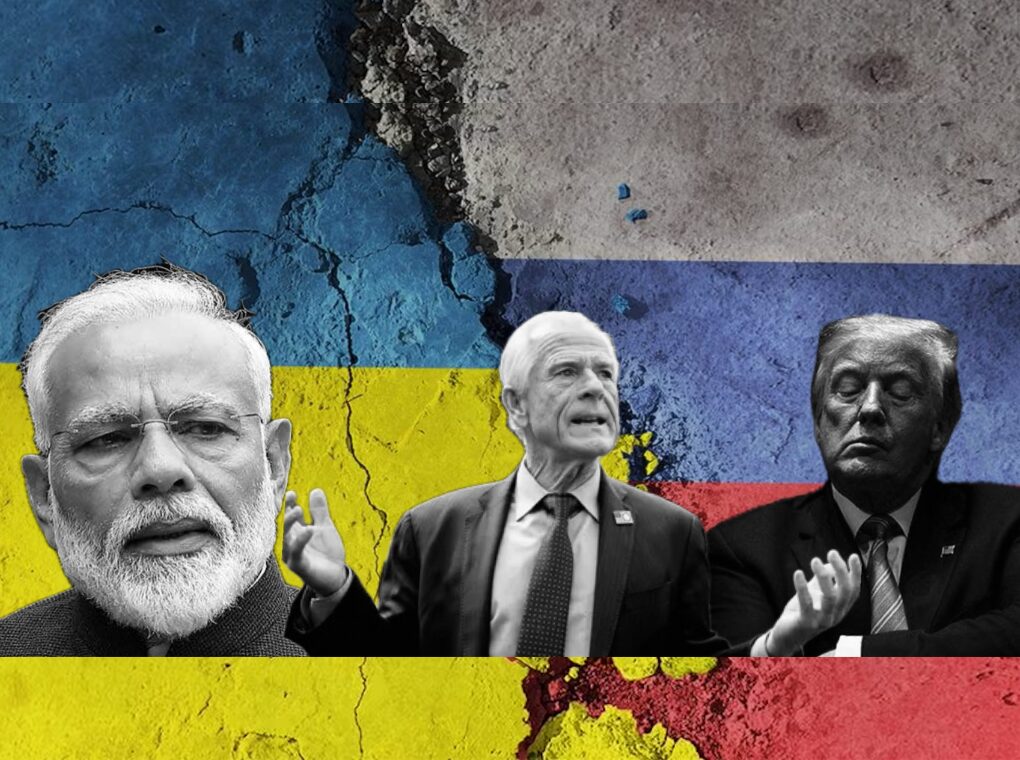When White House trade advisor Peter Navarro declared that “it’s Modi’s war,” his words raised eyebrows not just in India but across much of the world. By suggesting that the path to peace in the Ukraine conflict runs through New Delhi, and by telling India not to be “arrogant” about sovereignty, Navarro echoed a line of thought increasingly common in Washington circles: pressure India to toe the Western position while ignoring the complex realities at play. Speaking during an interview, Navarro also said that the United States could waive 25 per cent tariffs on India if New Delhi halts crude oil purchases from Russia.
“Everybody in America loses because of what India is doing. The consumers and businesses and everything lose, and workers lose because India’s high tariffs cost us jobs, and factories, and income and higher wages. And then the taxpayers lose because we got to fund Modi’s war,” Navarro said.” The anchor even interrupted Navarro, asking him if he meant to say “Putin’s war”, Navarro said, “No, I mean Modi’s war, because the road to peace runs through New Delhi, I mean that’s a lot of money.”
A Simplistic Reading of India’s Choices
India’s foreign policy has long emphasized strategic autonomy. This is not a new doctrine, nor is it born out of opportunism in the present Ukraine–Russia war. To reduce India’s stance to arrogance or selfishness is to misunderstand decades of diplomatic practice rooted in non‑alignment, pragmatism, and national interest.
Moreover, Navarro’s framing that India must “side with democracies” by distancing itself from Russia and China—ignores the broader global hypocrisy. Several U.S. allies, including European nations, continue to purchase energy from Moscow, often quietly, citing their own economic compulsions. Yet only India is frequently singled out. Why? Because India, unlike smaller states, holds the power to set its own course.
The Selective Lens of Western Critics
It is striking that Navarro did not direct his advice to Berlin, Paris, Tokyo, or Ankara—countries that have their own balancing acts with Moscow. Instead, the spotlight falls on New Delhi. The suggestion seems to be that sovereignty counts when Western capitals exercise it, but becomes arrogance when India cites the same principle.
There is also the internal contradiction in arguments like Navarro’s. Washington often insists nations respect sovereignty and resist coercion, yet in the same breath, India is told to fall in line with policies dictated thousands of miles away. Surely those making these demands must sense the irony, even if they never acknowledge it aloud.
India’s Role in Today’s World
India’s global role is broader than just the Russia issue. As a democracy of 1.4 billion people, a technological power, a key market, and a rising force in Asia, it cannot be reduced to a pawn in someone else’s rivalry. When New Delhi calls for dialogue, restraint, and pragmatic engagement, it is offering something very few others can: credible influence with multiple sides.
India’s position strengthens, rather than weakens, the prospects for peace. Had India blindly aligned with the West, it would no longer retain the trust of Moscow and others. By holding its ground, New Delhi ensures that channels of conversation remain open.
The Way Forward
The narrative of blaming “Modi’s war” is misguided at best and disingenuous at worst. It ignores the reality that this is not India’s conflict. The real test of statesmanship lies in building inclusive frameworks for peace—not in scapegoating a country that dares to exercise independent judgment.
If Navarro’s advice is to “side with democracies,” then he should also advise Trump and peers about consistency in policy. For credibility, Western leaders must hear themselves as clearly as they expect others to listen. India’s steadfastness is not arrogance; it is sovereignty in practice. And in today’s fractured world, sovereignty coupled with balance is exactly what keeps the space for peace alive.
